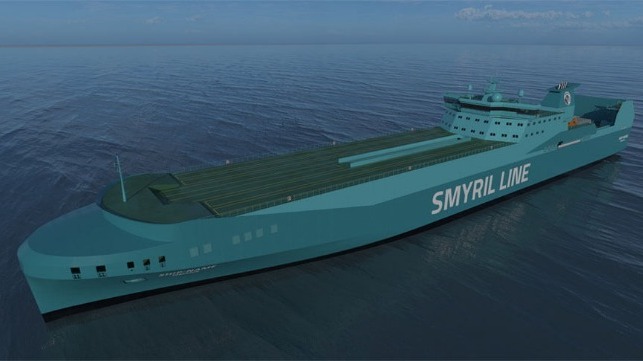Methanol Applications Expand with First North Atlantic Cargo RoRo Order

Methanol continues to gain momentum as the preferred alternative fuel option for many new ship designs with Smyril Line based in the Faroe Islands reporting the order for two modern and environmentally-friendly RoRo cargo ships. Planned to start sailing in 2026, the ships that are designed for the North Atlantic run to Iceland and the Faroe Islands will be prepared to sail on e-methanol.
"Now is the time to set ourselves new and bigger goals towards reducing emissions in the North Atlantic," says Jens Meinhard Rasmussen, CEO of Smyril Line. "With the new ships, we emphasize futureproofing and leading the company towards a greener energy solution and lead the way for Smyril Line towards the goals for decarbonization in our fleet renewal.”
The ships are being designed in close cooperation with Knud E. Hansen, naval architects, and drawing on the extensive experience of Smyril Line operating on the North Atlantic for the past 40 years between Europe, the Faroe Islands, and Iceland. The company currently has a 37,000 gross ton passenger vessel as well as five cargo ships.
Smyril Line reports it opted to prepare the ships for e-methanol, which it considers the best future choice for green energy.
“We have been operating routes in the North Atlantic since 1982,” said Rasmussen. “This is not just one of the world's longest RoRo and RoPax routes, but probably also the one with the most challenging sailing conditions. We know from experience that sailing on our route places great demands on both ship and crew, and we have therefore designed the ships with this in mind."
The order for the construction of the two ships was placed with CIMC Raffles shipyard in China, with each of the ships measuring 623 feet (190 meters) in length and featuring 3,300 lane meters for trailers. They are highlighting that the ships will be able to transport much larger quantities with an energy saving of at least 60 percent versus their current ships.
Compared to the company's existing fleet, the new ships will also emit significantly less per transported ton. At the same time, the ships will be equipped with a battery system and the possibility for shore power, which means that port operations can be conducted without emissions. At the same time, they are designed for optimal year-round seaworthiness in the North Atlantic.
